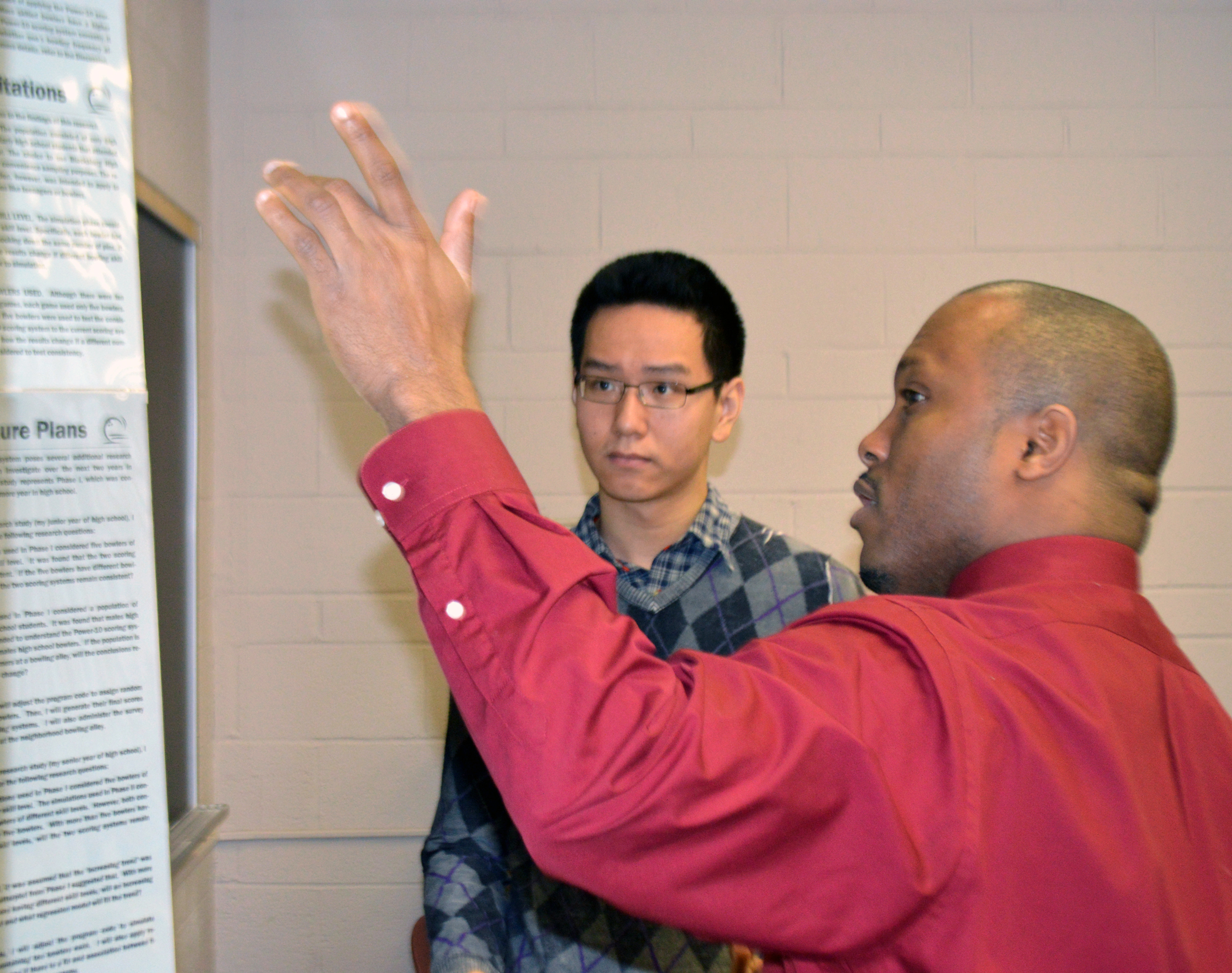Diversity program pairs faculty with high school students for science fair prep

Back in 1997, Marlow Lemons remembers walking past the campus of Georgia Tech on his way home from school wishing he had the courage to ask a professor there for help with a science fair project.
“I’d take the train across town to the campus, walk into one of the academic buildings, look around, get nervous, turn around, and go home,” Lemons said. “I’ve always regretted that and I promised myself that if I ever became a professor, I would not let that opportunity pass for another student.”
True to his word, Lemons, now an advanced instructor of statistics, and working through the College of Science’s Diversity Committee, set up the Saturday Science Fair Prep program. The program, which started in the fall 2012 semester, is available to students from five area high schools. Students who take part learn about topic development, experimental design, statistical analysis, project-board construction, and presentation skills.
“The purpose was to get minority faculty to work with, primarily, minority high school students on research in preparation for science fairs,” Lemons explained.
No stranger to science fairs himself, Lemons has been a judge at the state, regional, and international levels for more than 15 years. “I had the good fortune to participate in the international science fair when I was in high school,” he said. “I had a project dealing with butterflies and light.”
That experience, and the memory of winning $6,000, helps him motivate those in the program.
“This is an opportunity for kids to earn a lot of money for college,” he said. “In fact, winning the international science fair is essentially a free ride through college.”
Students who want to take part in Lemons’ program can go to the Saturday Science Fair Prep website to sign up.
Five students are taking part this year. Lemons is mentoring Blacksburg High School sophomore Bright Zheng, a 15 year old whose first bowling experience inspired his project.
“It’s not just interaction with a faculty member,” Lemons explained, “they also get to work with graduate and undergraduate students to learn about research and college life. They have the opportunity to work with the folks at the library who are fantastic in helping with resources and workshops. It’s a very thorough experience which helps prepare them for a future in college.”
For Zheng, weekly meetings have included everything from determining the topic to hours of rehearsals and practice for presenting his project.
“When I arrived, we sat down and started talking about math and how people understand it,” Zheng said. “I mentioned that when I first went bowling, I thought the scoring system wasn’t very obvious. We talked about it and the research grew from there.”
Zheng’s project will be presented at the Blue Ridge Highlands Regional Science Fair March 8 and 9. If he wins the grand prize, he’ll go straight to the international science fair. If he wins a category prize, he’ll go to the state competition.
To help get him there, Zheng practices with Lemons and presents his project as part of a colloquium in front of graduate students, refining his presentation material and delivery to get ready for the big day.
“It’s exciting,” Lemons said. “When I met with Bright’s parents, they were excited too and very receptive to the goals of the program. Aside from this being potential free money, I think the program helps our younger students be open-minded about research and gives them an opportunity to add to a body of knowledge.”
Every Saturday, Lemons and Zheng can be found talking about statistics, variables, distributions, correlations, and bowling. And they’ll keep meeting for as long as Zheng’s project keeps him in the competition.
Lemons isn’t about to turn around and go home this time – and he won’t let Zheng either.



.png.transform/m-medium/image.png)
